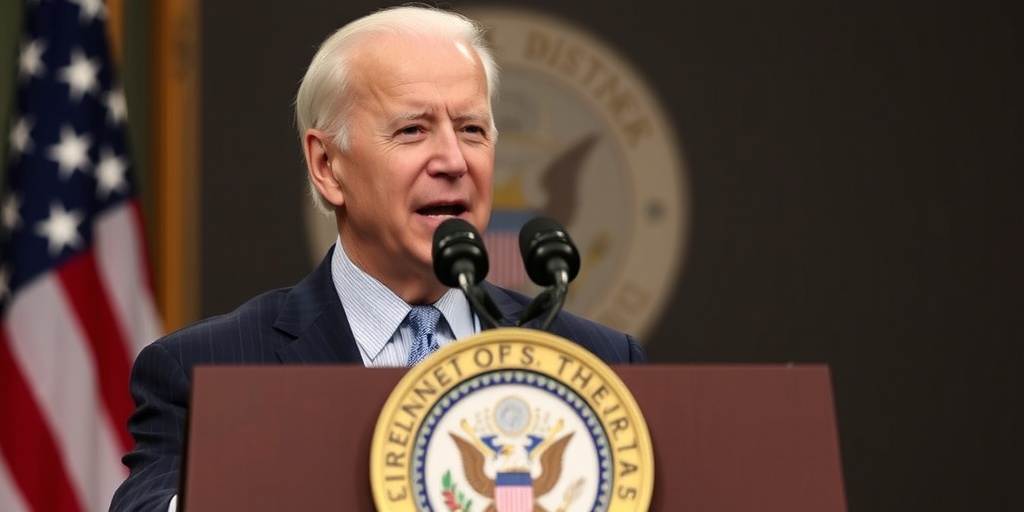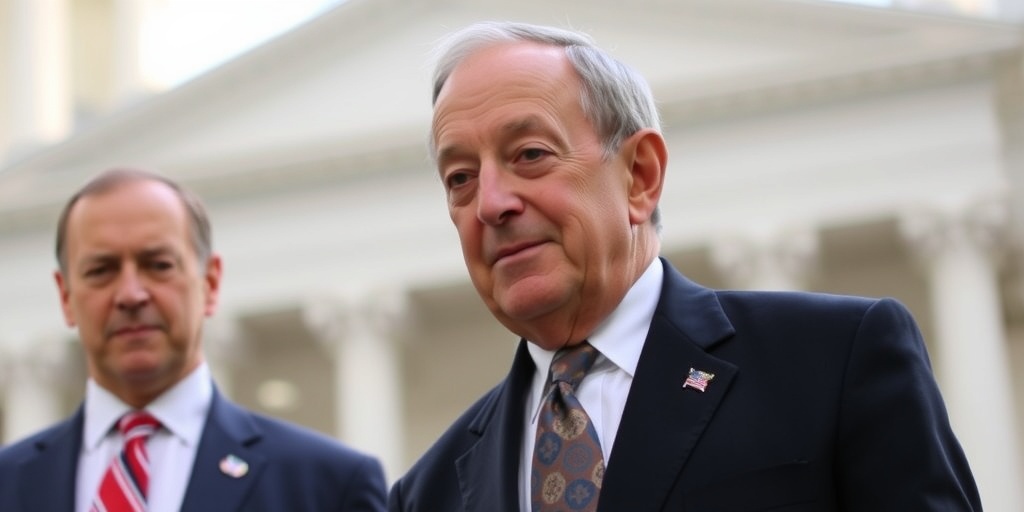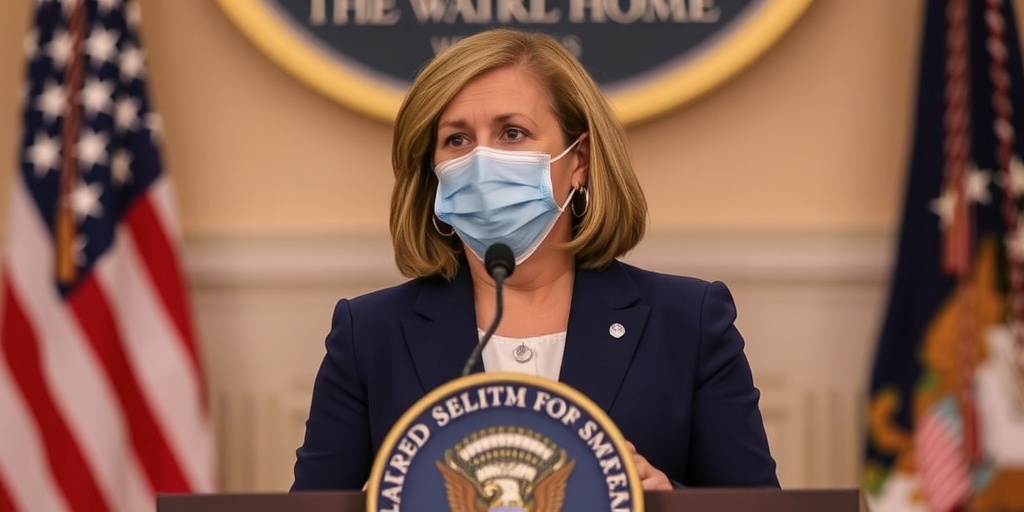Now Reading: Virginia Governor Blasts Biden for Commuting Sentences of Two Men
-
01
Virginia Governor Blasts Biden for Commuting Sentences of Two Men
Virginia Governor Blasts Biden for Commuting Sentences of Two Men

Virginia Governor Criticizes Biden’s Commutation of Sentences for Men Involved in Murder of Police Officer
In a pointed critique on Saturday, Virginia Governor Glenn Youngkin expressed his disapproval of President Biden’s decision to commute the life sentences of two men associated with the 1998 murder of a Waverly police officer, Allen Gibson. Youngkin emphasized that Biden had made this controversial decision against the counsel of Jessica D. Aber, the U.S. attorney for the Eastern District of Virginia, a Biden appointee who reportedly opposed the commutations.
On Friday, President Biden announced the commutation of sentences for 2,500 individuals convicted of nonviolent drug offenses, a move that he described as addressing the issue of disproportionately long sentences that stemmed from outdated legal guidelines. This action is noted to be the largest set of individual sentence commutations ever granted by a sitting U.S. president.
Among those receiving clemency were Ferrone Claiborne and Terence Richardson, both arrested in connection with the murder of Officer Gibson while he was pursuing suspects involved in drug dealings. Initially, Richardson pleaded guilty to involuntary manslaughter in 1999 and received a five-year sentence, while Claiborne accepted a related misdemeanor charge that resulted in time served.
The original sentences handed down to the two men sparked outrage from Officer Gibson’s family and law enforcement officials across Virginia. The situation intensified in 2000 when federal prosecutors charged Richardson and Claiborne with conspiracy to distribute crack cocaine and murder, in connection to Gibson’s death. A jury acquitted the two men of murder but convicted them of drug-related charges, leading to a sentencing hearing where the judge ultimately decided on life sentences, claiming their participation in the killing warranted such a severe punishment.
For years, advocates of criminal justice reform have rallied for clemency for Claiborne and Richardson, asserting that the jurors did not convict them of murder. Both men have maintained their innocence regarding the killing of Officer Gibson.
Governor Youngkin, in his comments, condemned the Biden administration’s handling of the situation, labeling it a "gross injustice." He expressed deep sympathy for the family of Officer Gibson, stating, "My heart breaks for the family of Officer Gibson, who was brutally murdered, and here they are having to live with this all over again." Youngkin’s critique reflects broader frustrations among some political leaders regarding the Biden administration’s approach to criminal justice reform.
Youngkin went further, explaining that Aber had strongly opposed the commutations, noting that her objections hold weight in light of the Biden administration’s commitment to consult with federal prosecutors during the clemency review process. This aspect is significant since the opinions of federal prosecutors are typically influential in deciding the fate of clemency applications under the current administration.
Although the White House has yet to respond to Governor Youngkin’s criticisms, criminal justice reform advocates have generally praised Biden’s recent actions related to clemency. In his announcement, Biden highlighted the importance of his decision as a step towards "righting historic wrongs, correcting sentencing disparities, and providing deserving individuals the opportunity to return to their families and communities after spending far too much time behind bars."
It’s important to understand that a commutation does not invalidate a guilty verdict; rather, it merely alters or lessens the severity of a sentence. The decision to pursue federal prosecution against Claiborne and Richardson, after they initially received relatively light sentences, was seen as an unusual move at the time. This prosecution was led by then-prosecutor James B. Comey, who later became the director of the Federal Bureau of Investigation (FBI).
As this situation continues to unfold, it raises critical questions about the balance between criminal justice reform and the pursuit of justice for crime victims. The commutation decision highlights the complex nature of clemency powers exercised by the president, especially under growing scrutiny from state officials and the victim’s advocates. Governor Youngkin’s commentary adds another layer to the ongoing debate over criminal justice policies and their real-world implications in Virginia and beyond. The public and legal communities will likely be watching closely as responses to Biden’s decision continue to develop.
Matthew Cullen contributed to the reporting of this news story.
Stay Informed With the Latest & Most Important News
Previous Post
Next Post
-
 01New technology breakthrough has everyone talking right now
01New technology breakthrough has everyone talking right now -
 02Unbelievable life hack everyone needs to try today
02Unbelievable life hack everyone needs to try today -
 03Fascinating discovery found buried deep beneath the ocean
03Fascinating discovery found buried deep beneath the ocean -
 04Man invents genius device that solves everyday problems
04Man invents genius device that solves everyday problems -
 05Shocking discovery that changes what we know forever
05Shocking discovery that changes what we know forever -
 06Internet goes wild over celebrity’s unexpected fashion choice
06Internet goes wild over celebrity’s unexpected fashion choice -
 07Rare animal sighting stuns scientists and wildlife lovers
07Rare animal sighting stuns scientists and wildlife lovers





















